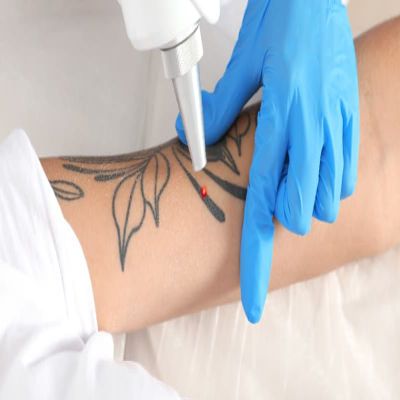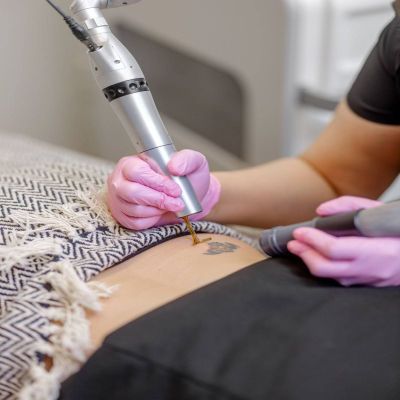Laser tattoo removal is a popular and effective method for removing unwanted tattoos. This technique uses advanced lasers to break down tattoo ink particles, allowing the body to gradually eliminate them. However, the success of Best Laser Tattoo Removal in Oman can be influenced by several factors, including lifestyle choices like smoking. If you’re seeking the best laser tattoo removal in Oman, understanding how smoking impacts the procedure is crucial for achieving optimal results.

Understanding Laser Tattoo Removal
How Laser Tattoo Removal Works
Laser tattoo removal works by targeting the ink particles in the skin with high-intensity laser beams. The laser energy is absorbed by the ink, causing it to break down into smaller particles that can be naturally eliminated by the body. The procedure typically requires multiple sessions to achieve complete removal, depending on factors like ink color, tattoo size, and skin type.
Benefits of Laser Tattoo Removal
Laser tattoo removal offers several benefits, including:
- Precision: Lasers can target specific ink colors and depths with high precision.
- Minimal Scarring: The risk of scarring is relatively low compared to other removal methods.
- Customization: Treatments can be tailored to the individual's tattoo and skin type.
The Impact of Smoking on Laser Tattoo Removal
How Smoking Affects Healing
Smoking can significantly impact the healing process after laser tattoo removal. Nicotine and other chemicals in cigarettes constrict blood vessels, reducing blood flow to the treated area. This diminished circulation can slow down the healing process and increase the risk of complications.
Impact on Laser Effectiveness
Smoking can also affect the effectiveness of the laser tattoo removal procedure. The reduced blood flow and impaired healing may lead to less efficient breakdown of ink particles. This could result in a longer treatment process and potentially less satisfactory results.
Additional Factors to Consider
Skin Health and Smoking
Healthy skin is essential for successful laser tattoo removal. Smoking negatively impacts skin health by reducing collagen production and impairing the skin's ability to repair itself. This can affect how well the skin responds to the laser treatment and can lead to prolonged healing times.
Consulting with Professionals
Choosing the Best Laser Tattoo Removal in Oman
When selecting a clinic for laser tattoo removal, it is essential to choose a facility with experienced professionals and state-of-the-art technology. The best laser tattoo removal in Oman will be equipped to provide personalized treatment plans and address specific concerns related to smoking and overall skin health.
Preparing for Your Treatment
Pre-Treatment Guidelines
Before undergoing laser tattoo removal, it is advisable to follow pre-treatment guidelines provided by your practitioner. This may include avoiding smoking for a period before the procedure to improve healing and enhance treatment effectiveness.
Post-Treatment Care
Proper post-treatment care is crucial for achieving the best results. This includes following your practitioner's instructions for aftercare, which may involve avoiding smoking and other activities that could hinder the healing process.
Long-Term Results and Maintenance
Achieving Optimal Results
To achieve the best results from your laser tattoo removal, maintaining good overall health and avoiding smoking are essential. Adopting a healthy lifestyle can contribute to more effective treatments and better long-term outcomes.
Regular Follow-Ups
Regular follow-up appointments with your practitioner can help monitor progress and make any necessary adjustments to your treatment plan. These appointments also provide an opportunity to address any concerns or complications that may arise.
Conclusion
Laser tattoo removal is a highly effective method for removing unwanted tattoos, but its success can be influenced by various factors, including smoking. For those seeking the best laser tattoo removal in Oman, understanding the impact of smoking on the procedure is crucial. By prioritizing skin health and adhering to professional guidelines, individuals can enhance the effectiveness of their treatments and achieve the best possible results.
